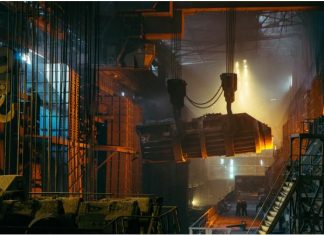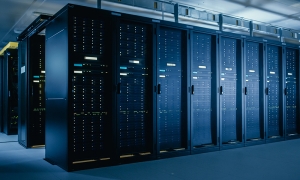Introduction
The manufacturing industry is undergoing a major shift across the United States, and Houston is right at the heart of it. Traditionally known for its energy sector and industrial strength, Houston's factories are now embracing smart technologies to remain competitive in a fast-changing market. The emergence of Industry 4.0 has opened doors to new possibilities, from automation to real-time analytics, enabling factories to boost productivity, lower costs, and improve product quality. This transformation is not just a technological upgrade—it's a strategic shift.
Houston's Manufacturing Evolution
For decades, Houston has been a powerhouse in manufacturing, especially in the oil, gas, and aerospace sectors. However, as global competition intensifies and supply chains grow more complex, traditional systems have proven inadequate. Outdated machinery, manual workflows, and isolated operations are slowly being phased out. In their place, smart manufacturing systems are being introduced, combining robotics, IoT, AI, and cloud computing. Houston factories are no longer just about physical output—they're becoming intelligent hubs of connected data and real-time decision-making.
Digital Transformation Solutions in Houston
Many companies across the city are turning to Digital Transformation Solutions in Houston to modernise their manufacturing facilities. These solutions integrate advanced software with physical infrastructure, enabling seamless monitoring, control, and optimisation of operations. Local tech firms and global providers are offering custom tools that fit Houston's unique industrial landscape. From cloud-based ERP systems to machine-learning-powered predictive maintenance, manufacturers are leveraging these digital resources to reduce downtime, improve efficiency, and maintain compliance with regulatory standards. This rapid adoption also helps businesses stay resilient in the face of economic shifts and market disruptions.
Top Technologies Powering Smart Manufacturing
Houston's smart manufacturing scene is driven by a combination of next-gen technologies, each playing a specific role in the transformation process:
1. Industrial IoT (IIoT)
Sensors and connected devices collect real-time data from machines, allowing operators to monitor equipment health, environmental conditions, and production efficiency.
2. Artificial Intelligence & Machine Learning
AI algorithms help in predictive maintenance, demand forecasting, and quality control. Machine learning systems become smarter with time, allowing continuous optimization of processes.
3. Robotics & Automation
Collaborative robots (cobots) are now common in Houston's factories. These machines work alongside humans to speed up repetitive tasks, reduce human error, and ensure precision.
4. Cloud Computing
Cloud platforms store and analyse vast amounts of data. Cloud ERP systems give managers instant access to operational metrics, inventory levels, and customer orders from anywhere.
5. Digital Twins
Digital replicas of physical systems allow factories to simulate changes before applying them. This technology reduces risk and helps manufacturers test performance under different scenarios.
Benefits for Houston-Based Factories
The digital transformation of Houston factories brings with it a wide range of tangible benefits:
-
Increased Efficiency
Automation and real-time data allow manufacturers to streamline production and eliminate waste. -
Reduced Downtime
Predictive maintenance identifies potential failures before they occur, helping companies avoid costly shutdowns. -
Improved Quality
Smart sensors can detect product defects early in the process, reducing returns and increasing customer satisfaction. -
Cost Savings
With better energy management, optimised inventory, and efficient workflows, factories save significantly in the long run. -
Workforce Empowerment
Technology doesn't replace workers—it enhances their capabilities. Operators are now trained in digital tools, enabling better control over complex systems. -
Sustainability
Houston factories are under pressure to reduce emissions and conserve resources. Smart systems help monitor environmental impact and promote sustainable practices.
Challenges and Solutions in Implementation
Despite its promise, smart manufacturing isn't without its hurdles. Houston-based manufacturers face several challenges in adopting digital transformation:
1. Upfront Costs:
Implementing new systems and retraining staff requires a significant investment. However, government grants and local tech partnerships can reduce the burden.
2. Skill Gaps:
Many traditional workers lack experience with digital tools. Workforce development programs in Houston are stepping up to offer training in automation, AI, and data analytics.
3. Cybersecurity Risks:
More connectivity means more vulnerability. As factories become digital, protecting data and systems from cyber threats becomes critical.
4. Integration Issues:
Older systems may not easily integrate with new technology. Hybrid models that combine legacy equipment with modern interfaces are gaining traction as a bridge solution.
5. Change Resistance:
Employees and management alike may be hesitant to change established processes. Open communication and involving teams in the transformation process help foster a culture of innovation.
The Future of Smart Manufacturing in Houston
Looking ahead, smart manufacturing in Houston is expected to accelerate even further. As 5G connectivity becomes more widespread, factories will benefit from ultra-low latency and faster data transmission. Augmented reality (AR) and virtual reality (VR) will be used for training, remote maintenance, and product visualisation. Blockchain is also entering the scene to improve supply chain transparency and trust. What sets Houston apart is its strong ecosystem of energy, manufacturing, and tech startups, creating a collaborative environment ripe for innovation.
Educational institutions like the University of Houston and Rice University are already partnering with local industries to provide research, talent, and pilot programs for smart manufacturing. As a result, Houston is not only adapting to the future—it is actively shaping it.
Conclusion
Smart manufacturing is more than a buzzword—it's a strategic necessity for Houston's industrial sector. The integration of advanced technologies has empowered local factories to become more agile, cost-effective, and sustainable. With the help of digital transformation solutions in Houston, businesses are unlocking new growth opportunities, enhancing workforce capabilities, and future-proofing their operations. While the journey is complex, the long-term benefits far outweigh the challenges. As factories continue to evolve, Houston is positioning itself as a national leader in smart manufacturing innovation.






